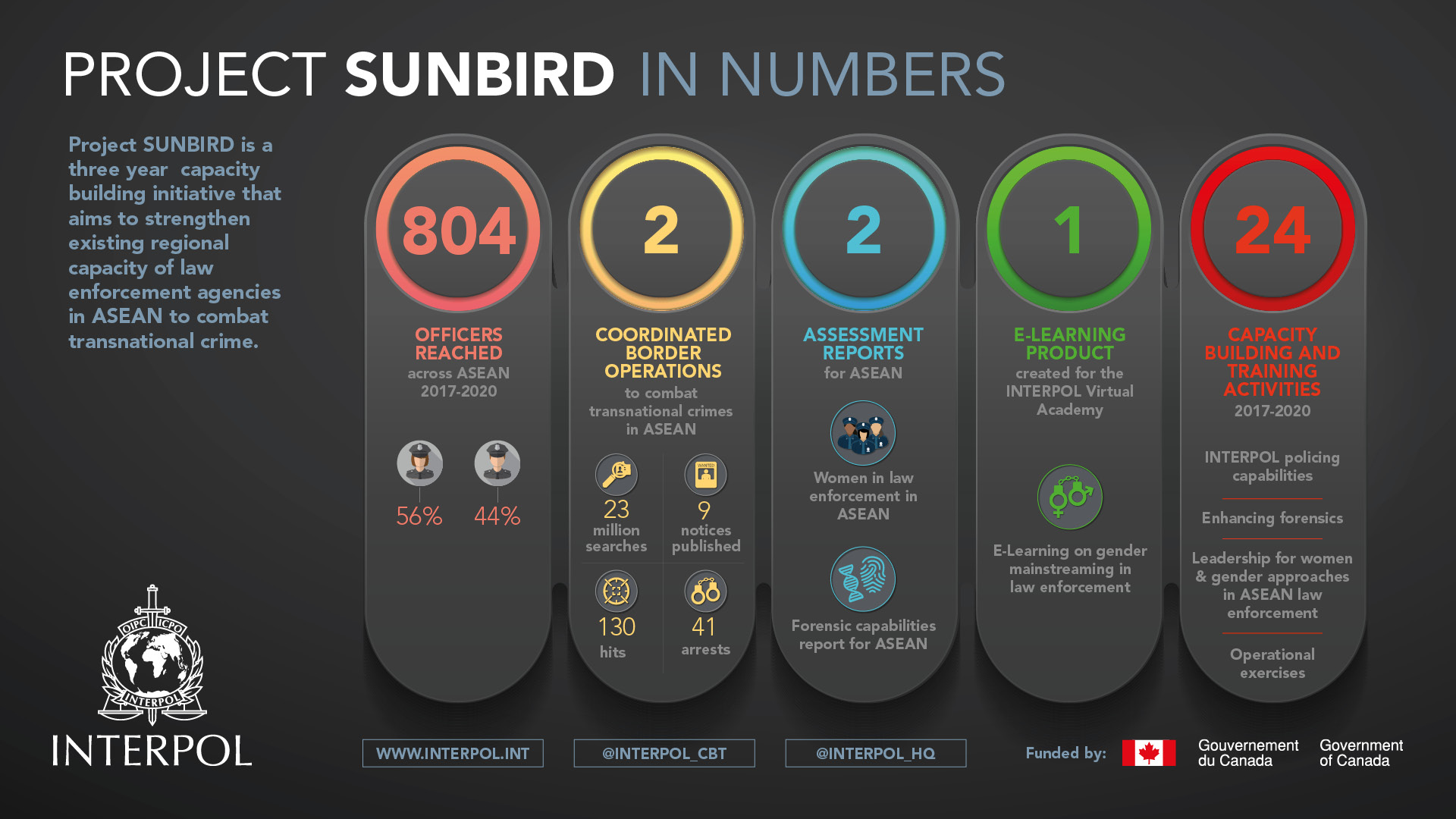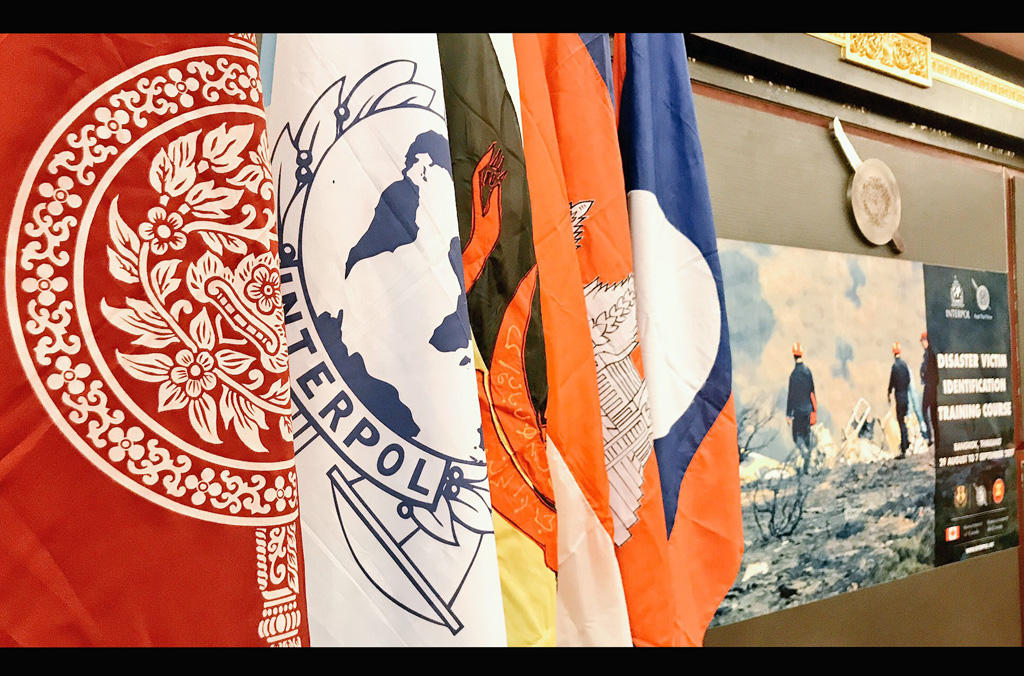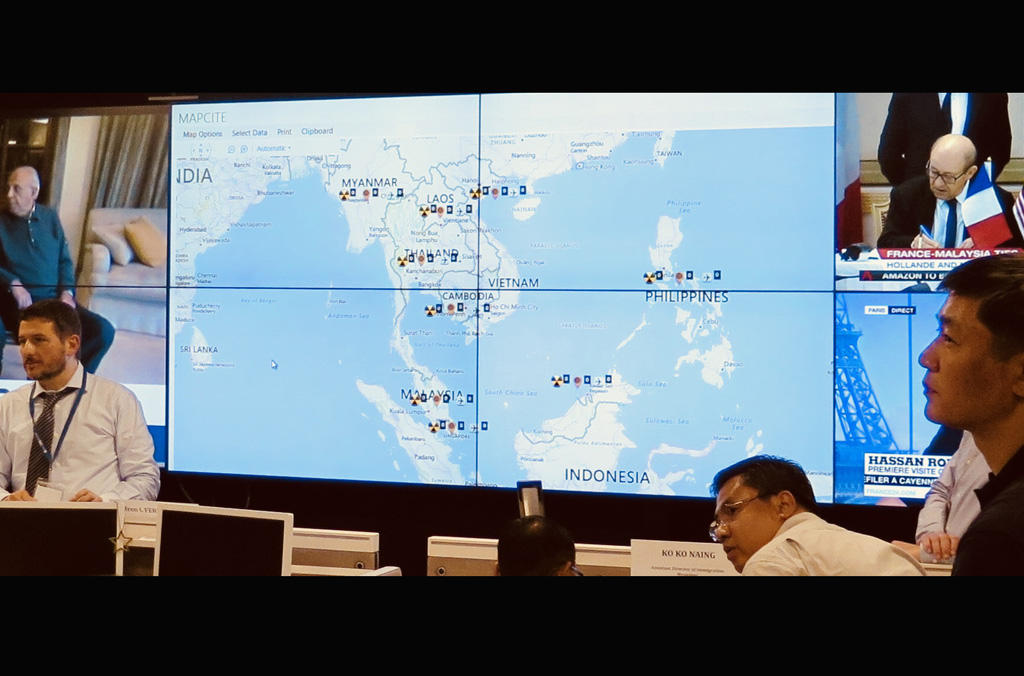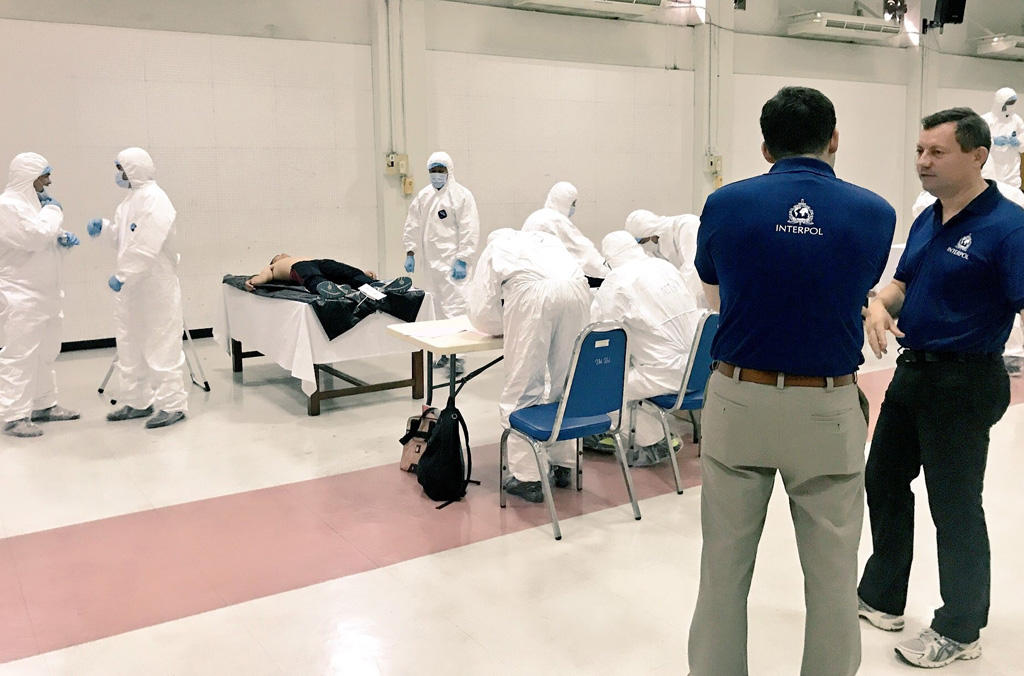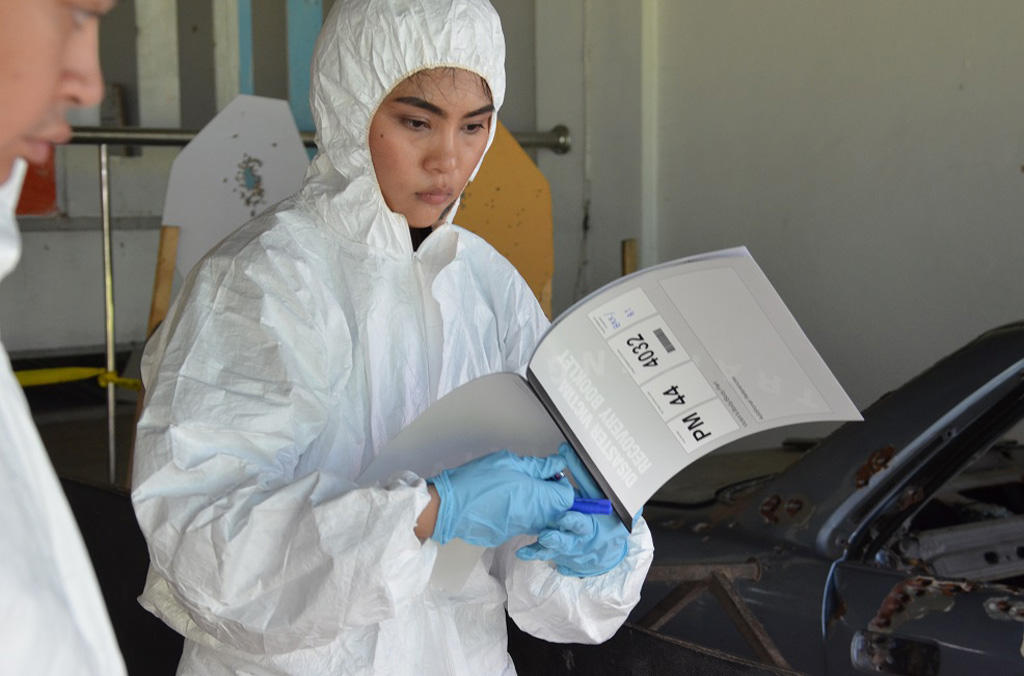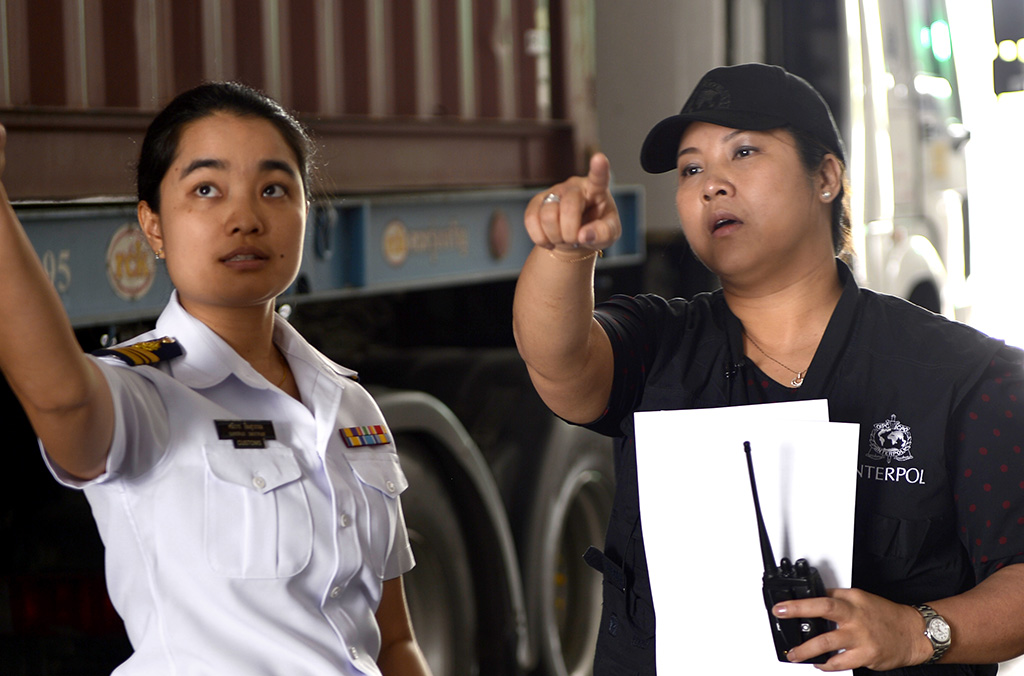Project Sunbird
Date of update: 10 February 2020
Strengthening existing regional capacity of law enforcement in the Association of Southeast Asian Nations (ASEAN) in combating terrorism and transnational crime.
Timeframe: 2017-2021
Donor: Global Affairs Canada
Project Sunbird was a three-year (2017-2020) INTERPOL initiative to boost the skills of police across the Association of Southeast Asian Nations (ASEAN) region in combating terrorism and organized crime.
The project is divided into four pillars:
- Operations – on-the-ground transnational border security operations are conducted at key sea, air and land border points in the region to put the skills taught during the training courses into immediate practice;
- Policing capabilities – training courses on the use of our criminal databases, data processing and counter-terrorism investigative skills;
- Forensics: developing skills in the various fields of forensics, including the use of our forensics databases, which has been identified as a need for the region’s law enforcement;
- Leadership for women in policing – bringing together current and future female policing leaders to develop their leadership and management skills, working towards increased gender parity in the region’s law enforcement agencies.
Implemented with support from the Government of Canada, Project Sunbird built upon the successful outcomes of the previous INTERPOL Capacity Building Programme on Improving Counter-Terrorism and International Collaboration in ASEAN Member States (CT-ASEAN).
The project reached more than 800 officers from across the region. Underscoring the importance of gender inclusion, 56 per cent of participants across all activities were female.
Operation Sunbird
The first Operation Sunbird action in March and April 2017 saw police, immigration and maritime authorities from all 10 ASEAN countries screen travellers’ passports against our databases from 35 land, air and sea border points. Some eight million searches were conducted during the operation, resulting in 17 arrests and 110 ‘hits’ on passports recorded in the SLTD database (travel and identity documents).
Among the arrests were a suspected foreign terrorist fighter of Malaysian nationality who was deported to Kuala Lumpur from Turkey.
In 2019, Operation Sunbird IV saw close to 15 million searches made against INTERPOL’s databases at 90 border points across the region. This led to the arrest of 24 individuals, including 11 who were subject to INTERPOL Red Notices.
Policing capabilities
Data protection is an important aspect of international police cooperation. In this respect, in November 2017 the project organized a training session in the Philippines to certify 20 participants from nine countries as Data Protection Officers. The course provided the officers with the necessary training to ensure that all data processed by their National Central Bureaus (NCBs) complies with INTERPOL’s Rules on the Processing of Data. This was followed by an instructor development course so that the participants would be able to in turn train their colleagues on data protection regulations.
Workshops on developing national standard operating procedures for the use of SLTD database (travel and identity documents) were held in Myanmar and Laos in June 2018. A general course on INTERPOL’s policing capabilities and legal framework was held in Thailand in August 2018.
More than 20 officers from NCBs and immigration authorities in nine ASEAN countries attended the INTERPOL Policing Capabilities Programme in Thailand in August 2018, where they were trained on INTERPOL’s range of policing capabilities and related legal framework. This was followed by an instructor development course covering course design, presentation and communication skills.
A workshop on the use of INTERPOL’s I-link application which manages information exchange and international cooperation requests brought together 18 participants from nine countries in October and November 2018 in Brunei.
Forensics
To assist authorities in the region in developing their disaster victim identification (DVI) skills, a DVI training course was conducted in Thailand in August and September 2017 for 56 officers from eight ASEAN countries, with a dedicated in-depth session for the Royal Thai Police. Participants took part in practical exercises on victim recovery, post-mortem identification techniques as well as a mortuary exercise and training on the gathering of ante-mortem information from both relatives and incident scenes. In line with Project Sunbird’s women in policing objectives, nearly 40 per cent of officers trained were female.
Biometrics, including fingerprints and facial recognition, are important tools for identifying potential criminals and terrorists. In December 2017, INTERPOL held its first Fingerprint and Facial Recognition Symposium which brought together experts to discuss the latest biometric tools and techniques. Participants from Project Sunbird countries attended the symposium.
Our Forensic Capabilities Report for ASEAN is a comprehensive guide on the region’s competencies in DNA, DVI, facial recognition, fingerprints and firearm identification. It underscores the benefit of sharing biometric information regionally and globally via INTERPOL channels.
Adapting our methods during the coronavirus outbreak, we conducted an online biometrics training webinar in May 2020. The course was attended by 120 forensic specialists, frontline investigators and other law enforcement officers, with an even gender distribution. Live step-by-step demonstrations educated the participants on how to submit their country’s biometric data to INTERPOL’s DNA, fingerprint and facial recognition databases, and how to conduct searches of the databases. Emphasis was placed on the benefits of increasing both the quantity and quality of biometric data exchanged.
A terrorist crime scene and evidence examination course was conducted in December 2018 in Indonesia. Through practical exercises, the participants learned how to secure complex outdoor crime scenes, including searching, locating, recording, seizing and examining forensic evidence.
Leadership for women in policing
Engaging and empowering female law enforcement officers is a central pillar of all Project Sunbird activities.
In February and March 2018, we conducted a Leadership for Women in Law Enforcement seminar where 21 senior police and immigration officers from across ASEAN nations shared experiences for creating an inclusive and diverse policing culture in the region and began to develop a strong professional network of female officers. Challenges discussed included gender stereotypes, balancing work and family life, and opportunities to reach leadership positions.
This was followed in February 2019 by the I-Balance: Women Leaders in Public Safety Programme held in Indonesia. It included a mentorship aspect: the participants worked under the guidance of prominent female mentors to acquire the skills necessary to undertake roles of influence and responsibility in their daily work within their law enforcement agencies.
To promote the inclusion of gender perspectives in policing activities, we released an online e-learning course on gender mainstreaming in law enforcement. The course provides a comprehensive review of the concepts, international frameworks and instruments relevant for working with a gender perspective, and how gender-responsive policing services can lead to more effective law enforcement outcomes.
Shifting to online training in 2020 due to the coronavirus, a virtual Introduction to Leadership and Gender Mainstreaming webinar was held in May, aimed at junior and mid-level female officers. More than 250 participants from ASEAN and beyond logged in to gain an understanding of the issues around gender in law enforcement, such as gender equity, how a gender analysis can help better understand the security needs of communities, and how gender mainstreaming can improve operational results. The leadership sessions were designed to help participants identify their leadership strengths and leverage them within the law enforcement structure and culture, as well as identify challenges for women in leadership roles and potential solutions.
Regional cooperation
At its core, Project Sunbird encourages strong relationships between the ASEAN countries, as this is critical to developing a solid regional response against terrorism and transnational crime.
A gathering of the Heads of the INTERPOL National Central Bureaus (NCBs) from the 10 ASEAN countries was held in August 2017 to provide a forum for exchanging information and best practices; fostering strong professional relationships; and elaborating strategies to tackle the most pressing crimes affecting the region.
Related documents





